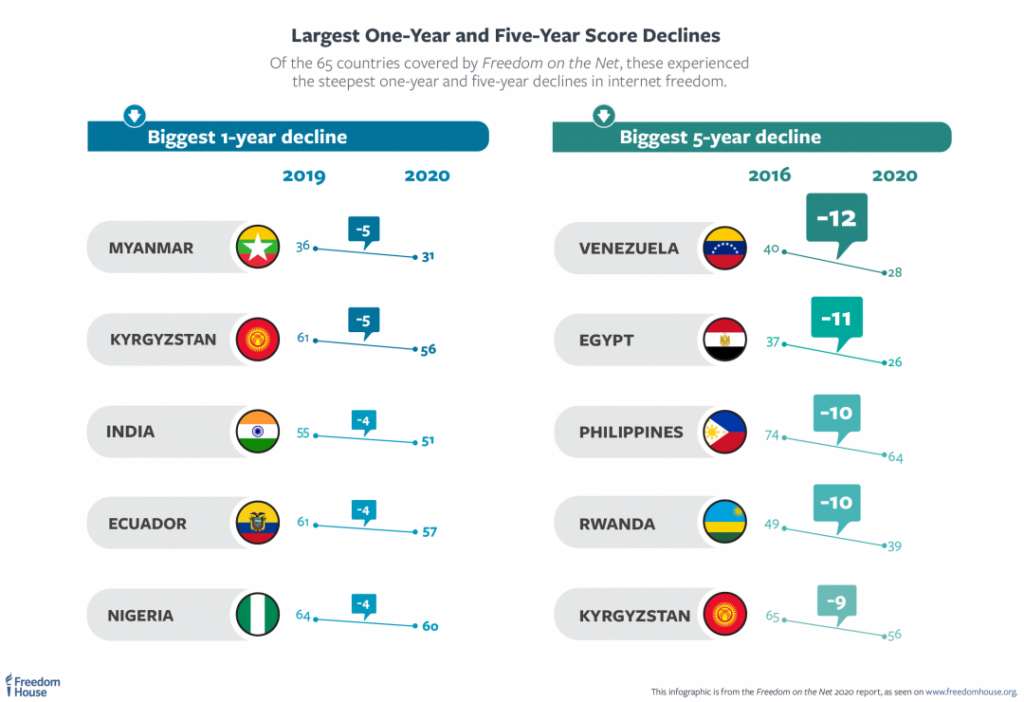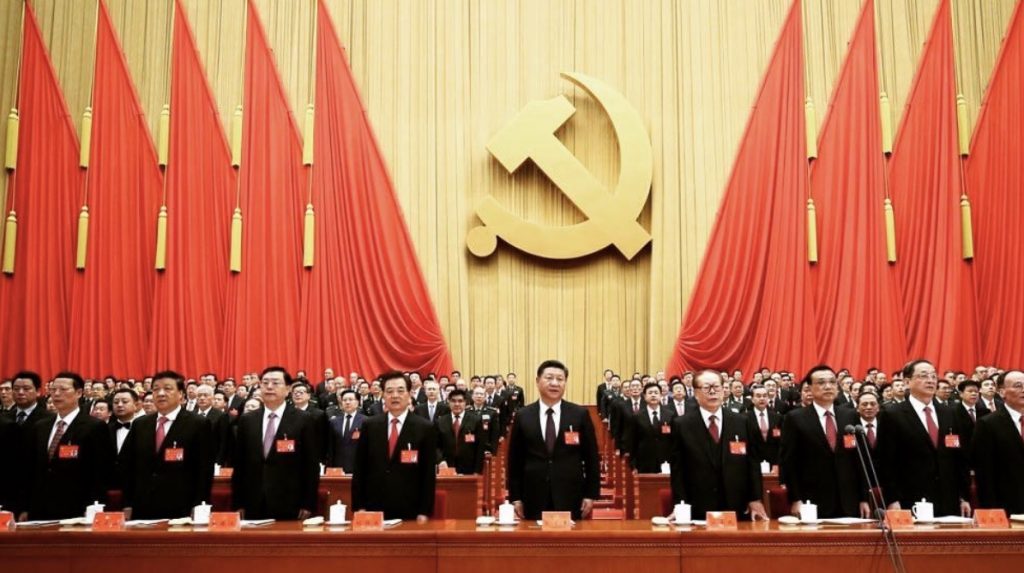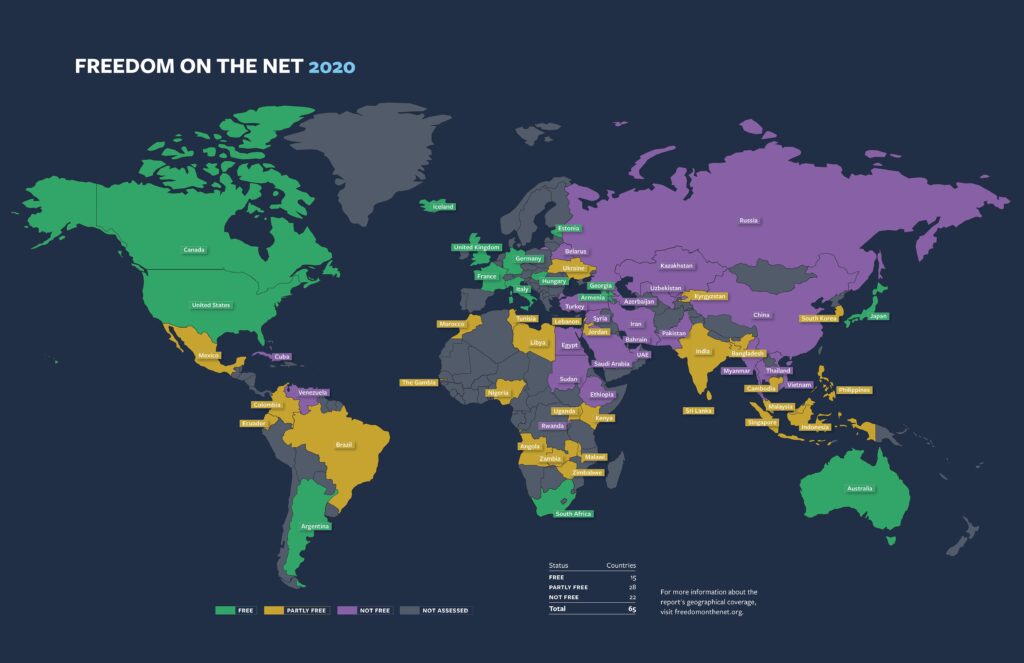According to the Freedom House 2020 Freedom on the Net index, Estonia has the second freest internet in the world – after Iceland; around the world, internet freedom declined for the 10th consecutive year.
Estonia scored 94 out of a hundred in this year’s Freedom on the Net index, maintaining its score from the last year. Iceland, where there are almost no restrictions on the internet content and the users’ privacy is well protected, scored 95 out of a hundred.
Estonia did not achieve the full score for four reasons.
First, the state blocks access to illegal online gambling sites.
Second, the state or its institutions can force the online media portals to remove their content. The report cites a court decision that forced Postimees Group (a privately-owned Estonian media business) to remove an already published online article, because the media outlet couldn’t back up its claims, considered a slander, with any evidence.
Third, the press freedom – correlated to internet freedom – has come under pressure in Estonia. The governing coalition’s politicians (comprising of the far-right EKRE, the populist Centre Party and the right-wing Isamaa) have sought to influence the media outlets. For example, politicians from EKRE and Isamaa made critical statements about the Estonian Public Broadcasting (ERR) and were name-calling certain journalists in the organisation. Also, Reporters Without Borders expressed concern about one of the largest newspapers in Estonia, Postimees, and called the newspaper’s owner to respect the editorial independence of the daily.

Finally, the online services, including the telecommunication service providers, are by law forced to share the users’ data with the state institutions.
The COVID-19 pandemic used as a cover to expand online surveillance
Freedom on the Net 2020 assesses internet freedom in 65 countries, accounting for 87 per cent of internet users worldwide. The report focuses on developments that occurred between June 2019 and May 2020 and found that internet freedom declined for the 10th consecutive year. Myanmar, Kyrgyzstan, India, Ecuador and Nigeria suffered the largest declines.

Freedom House, a Washington, DC-based NGO, said governments around the world have used the COVID-19 pandemic as cover to expand online surveillance and data collection, censor critical speech and build new technological systems of social control.
“The rapid and unchecked rollout of artificial intelligence (AI) and biometric surveillance to address the public health crisis has created new risks for human rights. Smartphone apps for contact tracing or quarantine compliance have been introduced in 54 of the 65 countries assessed in this report. Few countries possess effective mechanisms for protecting personal data against abusive practices by the state or the private sector,” Freedom House said.

According to Michael J. Abramowitz, the president of Freedom House, the pandemic is accelerating society’s reliance on digital technologies at a time when the internet is becoming less and less free. “Without adequate safeguards for privacy and the rule of law, these technologies can be easily repurposed for political repression,” he said in a statement, warning also that the health crisis is laying the foundation for a future surveillance state.
“History has shown that technologies and laws adopted during a crisis tend to stick around,” Adrian Shahbaz, a co-author of the report, added. “As with 9/11, we will look back on COVID-19 as a moment when governments gained new, intrusive powers to control their populations.”
China was the world’s worst abuser of internet freedom
Freedom House said that in at least 45 countries, activists, journalists and other members of the public were arrested or charged with criminal offenses for online speech related to the pandemic. Governments in at least 28 countries censored websites and social media posts to suppress unfavourable health statistics, corruption allegations and other COVID-19-related content.
China was the world’s worst abuser of internet freedom for a sixth consecutive year. “Chinese authorities combined low- and high-tech tools not only to manage the outbreak of the coronavirus, but also to deter internet users from sharing information from independent sources and challenging the official narrative. The pandemic is normalising the sort of digital authoritarianism that the Chinese Communist Party has long sought to mainstream,” Freedom House said.

“The dangers that AI surveillance poses to freedom and democracy are simply too grave to ignore,” Shahbaz said. “We should freeze the use of facial recognition and automated decision-making in sensitive areas such as law enforcement, health care, and education until we better understand the ways in which they perpetuate harmful biases and curtail human rights.”
Freedom House is a US-based non-governmental organisation that conducts research and advocacy on democracy, political freedom and human rights.
Cover: The Freedom House 2020 Freedom on the Net map.

